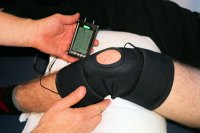
CLICK HERE for details on all of the revisions
While many items in the revisions may be concerning, the most serious proposal of concern is for the addition of a specific stand alone Metacompetency on ADJUNCTIVE TREATMENT. The draft language of the metacompetency is as follows:
META-COMPETENCY 9 – ADJUNCTIVE TREATMENT. Doctors of chiropractic employ adjunctive, active care and passive treatments to support chiropractic adjustment/manipulation and achieve specific patient goals and outcomes. Delivering active and passive care is based on the needs of the patient, education, and training of the doctor of chiropractic/chiropractic physician, jurisdictional law, and the mission of the DCP.
CURRICULAR OBJECTIVE: The program prepares students to –
A. Demonstrate the knowledge, mechanical principles, and psychomotor skills necessary to safely perform adjunctive active care and passive modalities and procedures.
B. Assess the patient outcome(s) following application of the adjunctive active care and passive modalities and procedures.
OUTCOMES: Students will be able to –
1) Apply adjunctive active care procedures while ensuring patient safety.
2) Apply adjunctive passive modalities while ensuring patient safety.
3) Identify the effects following adjunctive active care/passive modalities and procedures.
The most serious concerns have arisen in regards to how the addition of MC 9 would impact institutional autonomy and mission. Especially for schools whose focus revolves around the management of vertebral subluxation.
While there are very few schools left around the world that hold this as their primary mission, it is because of the slow and steady changes within the CCE's Accreditation Standards that have forced schools to alter their institutional missions in order to gain or remain accredited by the CCE.
The CCE enjoys a near total monopoly control over the educational, accreditation and licensing aspects of the profession since one must graduate from a CCE accredited institution in order to get a license to practice in nearly every jurisdiction in the United States and internationally.
CLICK HERE for more on that story
Holding such control over the profession has allowed CCE to "boil the frog slowly" by making changes to accreditation criteria and forcing schools to move in a more medical direction. These changes include, but are not limited to, the requirement that schools train chiropractors as primary care physicians, the language related to "necessary drugs" and the conflation of spinal manipulation with adjustment and subluxation with joint dysfunction under Meta-Competency 7: CHIROPRACTIC ADJUSTMENT/MANIPULATION.
These concerns are on top of the CCE's embrace over the years of several DCP programs that mislead the public by referring to their programs as training Doctors of Chiropractic Medicine.
CLICK HERE for more on those stories
The issues related to institutional autonomy and mission are significant in that the CCE nearly lost its recognition with the United States Department of Education in 2013.
Back then the Department of Education staff identified over 40 compliance issues leading Arthur J. Rothkopf, president emeritus of Lafayette College and vice chairman of NACIQI to tell the CCE, “You’ve hit the jackpot on deficiencies,” noting that the problems enumerated by the department suggested a “sloppiness” in CCEs actions as an accreditor.
Attorney Anne Neal who was involved in the decision before the Department of Education compared the acceptance of the CCE's Standards as being " . . about as voluntary as accepting an offer from Tony Soprano . . ."
There was a profession wide effort back then to address concerns that the CCE was not complying with the Code of Federal Regulations – Title 34 – 602.13. 34 CFR 602.13 - which deals with acceptance of the agency by others. According to the Code:
The agency must demonstrate that its standards, policies, procedures, and decisions to grant or deny accreditation are widely accepted in the United States by:
(a) Educators and educational institutions; and
(b) Licensing bodies, practitioners, and employers in the professional or vocational fields for which the educational institutions or programs within the agency's jurisdiction prepare their students.
During the run up to CCE's petition for renewal of its recognition by the Department of Education, over 4000 complaints had been sent to the Department expressing concerns that, among other things:
- That the CCE was headed in the wrong direction and that stakeholders felt the CCE does not adequately represent the profession as a whole.
- The CCE has confused and removed essential language to the practice of chiropractic, the term subuxation, and unambiguous language regarding vertebral subluxation is critical for the chiropractic profession.
- The CCE continues to advance chiropractic towards the direction of inclusion of drugs and surgery in chiropractic practice.
- The CCE decision-makers promote an expansive agenda seeking to use the accreditation process to drive the practice of chiropractic in a non-chiropractic, allopathic direction.
During testimony and public statements the CCE asserted that it values institutional autonomy and individual mission and that it is not their place to dictate the mission specifics of a school or program offering the DC degree.
Indeed, even the language of the new Metacompetency 9 that would seemingly mandate active and passive therapeutic physical modalities in the schools' clinics is confusing and even contradictory with its mention of the "mission of the DCP":
"Delivering active and passive care is based on the needs of the patient, education, and training of the doctor of chiropractic/chiropractic physician, jurisdictional law, and the mission of the DCP."
The CCE is currently holding an open comment period on the revisions to the Standards and chiropractors, trade organizations, schools and students are strongly encouraged to submit their concerns about how the addition of this new Metacompetency # 9 on Adjunctive Treatments would be detrimental to institutional autonomy and mission and that it would provide further evidence of CCE's ongoing non-compliance with the Code of Federal Regulations – Title 34 – 602.13. 34 CFR 602.13 - Acceptance of the agency by others.
The DEADLINE for comments is October 31, 2022
CLICK HERE to submit your concerns to the CCE
